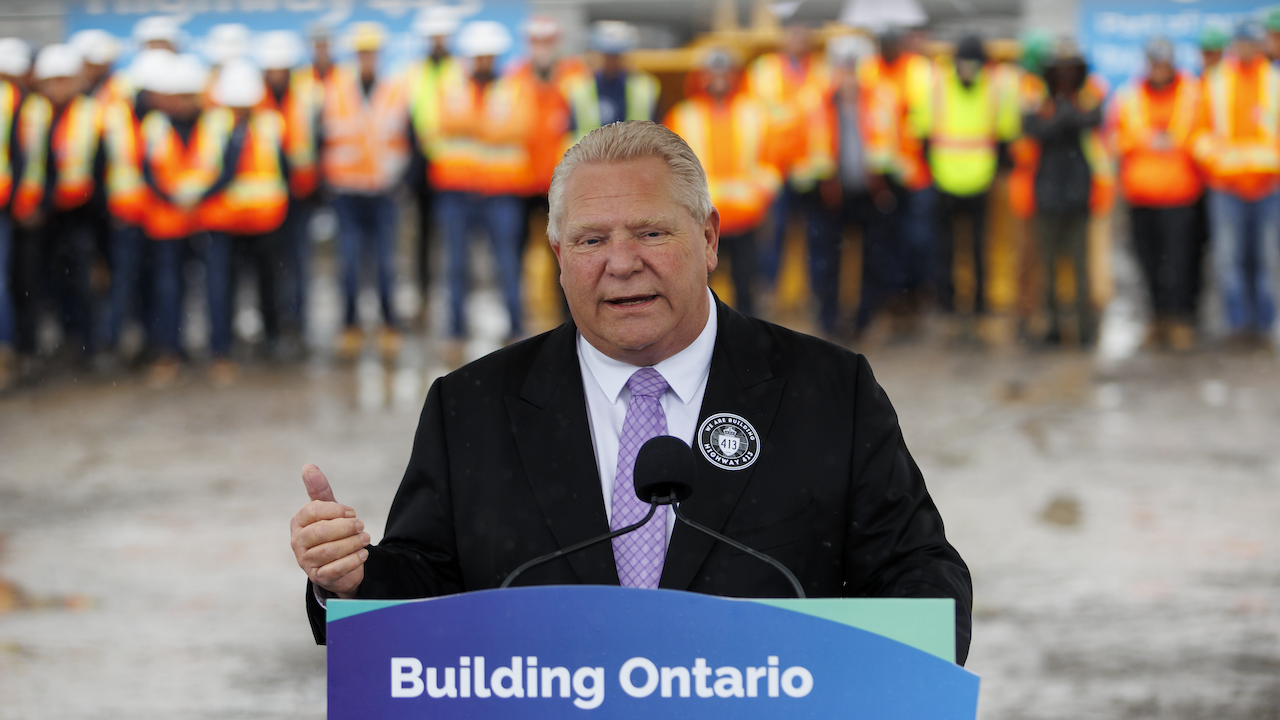World
Given Doug Ford’s record on housing, does he really want an early election? | TVO Today

Premier Doug Ford makes an announcement about Highway 413 in Caledon on April 30. (Cole Burston/CP)
The idea of an early election in Ontario — in defiance of the text and spirit of the province’s fixed-election-date law — has gone from speculation to rumour to likelihood in a matter of days, as Premier Doug Ford last week pointedly declined to commit to serving out the full four years he was granted after his 2022 election win.
There are any number of questions we could raise about this, not least of all: Is an early election worth the hundreds of millions of dollars the government is spending to accelerate corner-store beer sale? Regular readers, however, will not be surprised to learn that my initial reaction had to do with housing policy.
In short, my question is this: Does this government really think that, next spring, it’ll be able to defend the state of housing policy in Ontario? And, if I can ask a follow-up: What in the name of all that’s holy would make it think that?
First, a note on timing. In theory, the premier can walk over to the lieutenant-governor’s office on any day that ends in “y” and request the dissolution of the legislature and a new election; the LG’s constitutional role is to accept the advice of her first minister, subject only to some very limited caveats that don’t apply to Ontario’s current context. But the latest the Tories would be likely to call an election would be for next spring, since that would minimize the conflicts pretty much guaranteed to come up between a provincial election and a federal one later that fall.
(There’s also no guarantee that the federal election will wait until the currently scheduled fall 2025 date, but that at least isn’t under Ford’s control.)
A spring election would undoubtedly have some benefits for the government: it could roll out beer and wine in corner stores and maybe even get the ceremonial shovel-in-the-ground photo op for Highway 413 before asking voters to send it back to Queen’s Park for another term, nominally until 2029.
But the issue that’s been most toxic for this government — and the one that poses the biggest danger to its re-election bid — is the province’s suffocating housing crisis. That crisis is getting worse by the measures we have at hand, and it’s likely to keep getting worse, in no small part because of the government’s recent choices. And a spring election would mean it wouldn’t have time to turn things around, given how long it takes for policy change to start showing results in the housing sector.
Ontario’s housing starts, already dismal last year, seem to be headed further downward. Some of this is due to the Bank of Canada’s interest-rate increases, but provinces as different geographically, demographically, and politically as British Columbia and Nova Scotia both live under the same interest-rate regime as Ontario and have put up far better numbers in recent months. The problem is policy.
But at least the current government sees the undeniable, urgent need to tackle this issue head on with bold and aggressive policy change, right? Wrong. The most recent legislative package amounted to a comprehensive surrender by the province to municipal mayors and councils over the very question of who would be left in control of the supply of new housing. There will be no major housing bill before MPPs rise for the summer; that means the earliest we could get a change in policy would be the fall. That, in turn, means any serious policy change would come too late to dramatically change actual outcomes on the ground before the Tories ask voters to renew their mandate.
All of which would be immaterial if housing matters were unimportant to this government or to voters, but every major poll in the past year shows that housing affordability is a top-of-mind concern for the electorate. And polls are showing, at best, mixed results in terms of whether voters think the government is “getting it done” on the housing file.
Now, the Tories are obviously not without some possible rebuttals for their critics. Every premier since Confederation has blamed the federal government for their woes, and Ford or his subordinates undoubtedly will as well. (The imperative to have a strong relationship with the prime minister is diminished when that PM’s political lifespan can likely be measured in months.) Maybe that will work again.
But the objective facts of the housing status quo are bad, and they’re likely to get worse in the near future, even if there are major policy changes. And this is an area of public policy where voters are paying close attention and are already not giving the government top marks, to say the very least. This is precisely the mix of factors it’s really difficult for a government to spin its way out of. If Ford really wants an election next spring, he’d better hope that, by then, voters are talking about something other than how much their rents and mortgages are costing them.


)






